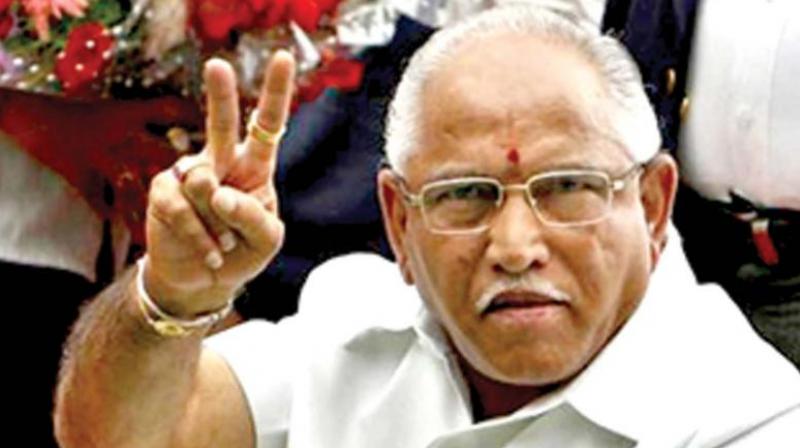Guest column: Charges against BS Yeddyurappa are very serious
The CBI thereafter filed a charge sheet and the information provided in the public domain was terribly disturbing.;

The charges of corruption against Yeddyurappa are of an extremely serious nature – serious enough for the Supreme Court itself to have directed the CBI to investigate and prosecute him.
The CBI thereafter filed a charge sheet and the information provided in the public domain was terribly disturbing. Naturally, this case held much public significance because the central allegation was about institutionalisation of ‘bribery’ – a public servant confers vast benefit on a private person while that private person transfers vast sums of money to the kith and kin of that public servant through formal banking channels. As such, the judgment of the trial court is expected to be only the first phase of a case that is bound to end up eventually in the Supreme Court.
I did see the victory speech of Yeddyurappa’s side on TV and very soon, they also started talking about the arguments made by his side in the Trial Court. Surprisingly, most of those arguments did not seem to discharge the extraordinary burden that Yedyurappa had carried on his shoulder.
What were the charges against him? Broadly, the earlier government notifies a certain parcel of land for acquisition but does not complete it fully. Consequently, the land continues to remain in private hands though the title to it is clouded and the market value is substantially diminished. Yeddyurappa’s sons buy it for a price of just Rs 40 lakhs. Next, their father ensures denotification of this land.
Expectedly, this land becomes highly valuable due to their father’s decision. The land is then sold by his sons to a mining company that had received benefits from his father – for Rs 20 crores. This is an obvious charge of corruption – to a layman as well as a trained prosecutor.
The burden on Yedyurappa to disprove these charges was extraordinary. In fact, proof of guilt in such cases comes down to forming a careful judicial inference. The question surrounding his acquittal is whether the Trial Judge reached or refused to reach such an inference.
We will know soon when the judgment is released and after the appeals courts have their say. Also, a mining company that receives substantial favours from Yeddyurappa which had no connection to him prior to his tenure as the Chief Minister develops a sudden affection for Yeddyurappa’s children.
Then, a Trust run by Yeddyurappa and his sons receives vast sums of money in ‘donation’ from the associate of this mining company. These transactions rightly attracted a charge of corruption and Yeddyurappa’s acquittal, one expects, comes from an extraordinary disproving of corruption by his side.
Needless to say, the CBI had made much of Yeddyurappa’s conferment of waiver of more than Rs 800 crores to these mining companies as a quid pro quo for benefits that his kith and kin received from the associates of these mining companies.
To repeat, the proof in such case turns on whether the trial judge reached a careful judicial inference and the public has a great right to know how such an inference was reached. Given the central allegation that this case institutionalised the giving and taking of ‘bribery’, the outcome deserves to be answered by the appeal courts – the High Court and eventually, the Supreme Court. Needless to say, Yeddyurappa, like any other citizen was rightly presumed to be innocent until judgment. Given his acquittal, he has every legal right to demand that he be presumed innocent.
(The author, K.V. Dhananjay, is an advocate at the Supreme Court)

